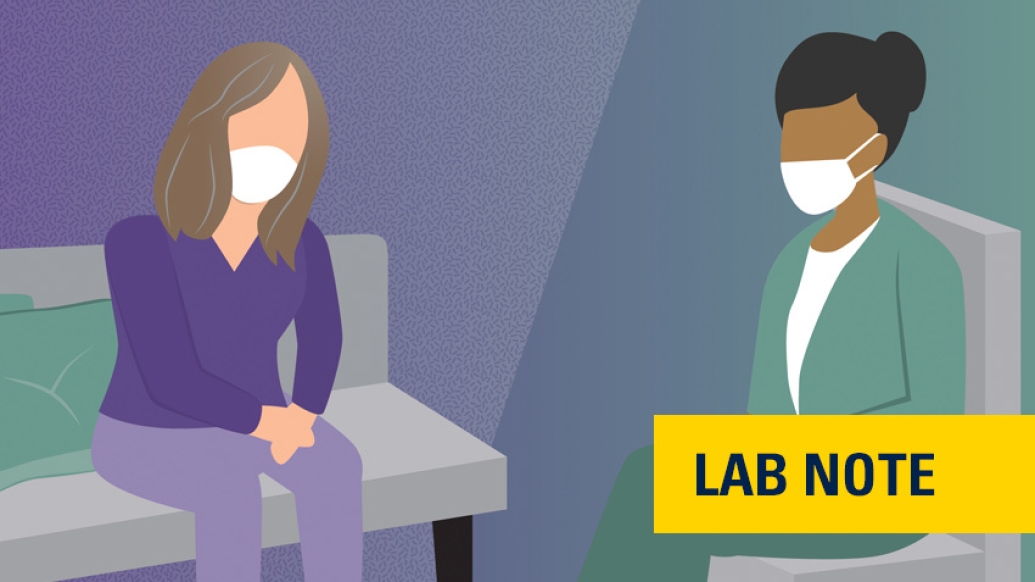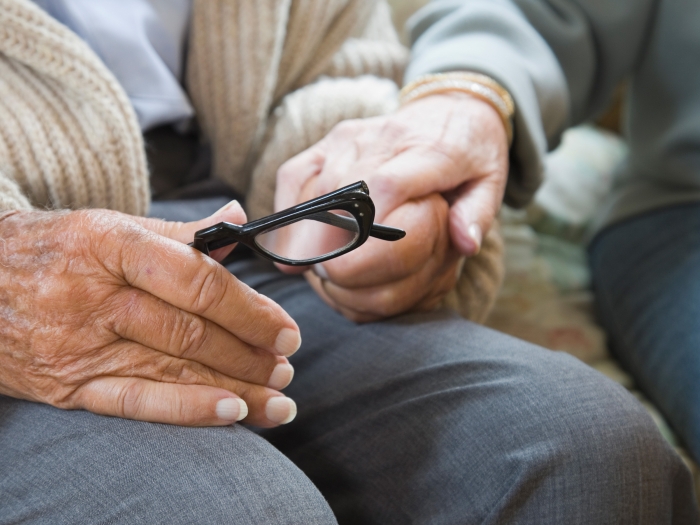Women, people in their 50s and early 60s, and those in fair or poor health most likely to report worse depression, anxiety, sleep and overall mental health in past year.
10:48 AM
Author |

As the pandemic enters a new phase, and talk of getting "back to normal" fades in the face of surging cases of COVID-19 and lagging vaccination against it, a new study suggests a need to check on the mental health of people over 50.
Based on a poll of more than 2,000 older adults nationwide, researchers from the University of Michigan recommend that health providers screen older adults for symptoms of depression, anxiety and sleep problems brought on or worsened by the pandemic, and help them connect to resources and care.
Certain groups – those 50 to 64, women, those with higher levels of education and those who say their physical health is fair or poor – are more likely to have experienced worsened mental health during the first nine months of the pandemic, the study shows.
"These findings show we need to continue to look for and address the mental health effects of the pandemic and connect people to treatment resources. Poor mental health can decrease functioning, independence, and quality of life for older adults but treatment can significantly help," said Lauren Gerlach, D.O., M.Sc., lead author of the new paper and a geriatric psychiatrist at Michigan Medicine, U-M's academic medical center.
While 20% of all older adults in the national sample reported worse mental health during the pandemic, people in these subgroups were much more likely to report this. Adults ages 65 through 80 were less likely to report such effects, a sign of resilience in this age group, says Gerlach.
The findings, published in the Journal of General Internal Medicine, draw from the National Poll on Healthy Aging. The poll, based at the U-M Institute for Healthcare Policy and Innovation, receives support from AARP and Michigan Medicine, and originally published initial findings from the mental health poll in May.
The new paper included further analysis of the poll data. For instance, it shows that women were more likely to have discussed mental health concerns during the pandemic with their primary care physician, or to consider taking medication to treat a mental health concern brought on by the pandemic.
The poll was conducted in late January, when COVID case rates were high across the nation and vaccination of older adults had just begun. Laptops and internet access were provided to poll respondents who didn't already have them.
The poll also reveals hopeful signs that many older adults are showing long-term resilience. Two-thirds say their current mental health is excellent or very good. Just over 80% say their mental health is as good as, or better than, it was 20 years ago. Nearly one in three (29%) say that they have made a lifestyle change to improve their mental health since the start of the pandemic such as exercise, diet, and meditation.
The Michigan Medicine Department of Psychiatry developed a mental health guide for older adults during the pandemic, and the Centers for Disease Control and Prevention offers information on pandemic-related stress and coping strategies for all adults and children.
Paper cited: "The COVID-19 Pandemic and Mental Health Symptoms Among US Adults," J GEN INTERN MED. DOI: 10.1007/s11606-021-07046-3

Explore a variety of healthcare news & stories by visiting the Health Lab home page for more articles.

Department of Communication at Michigan Medicine
Want top health & research news weekly? Sign up for Health Lab’s newsletters today!





